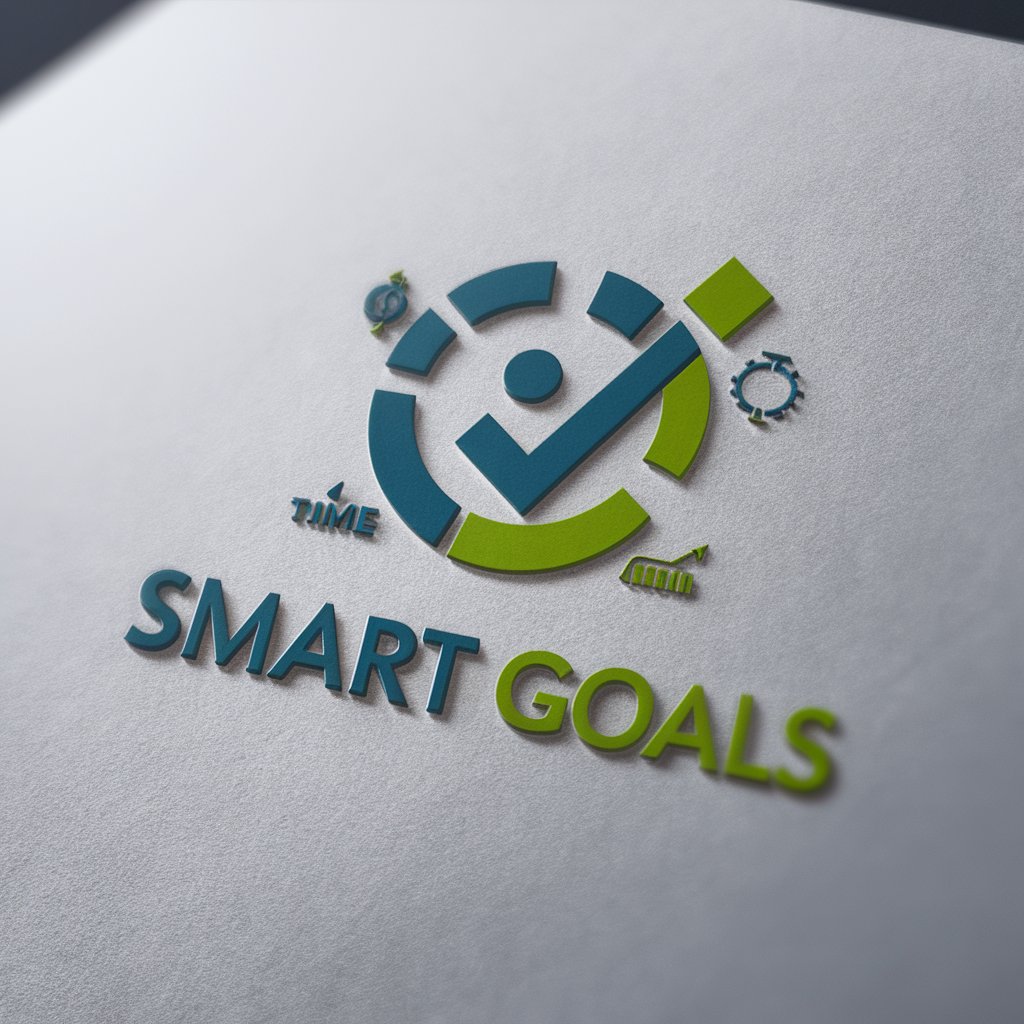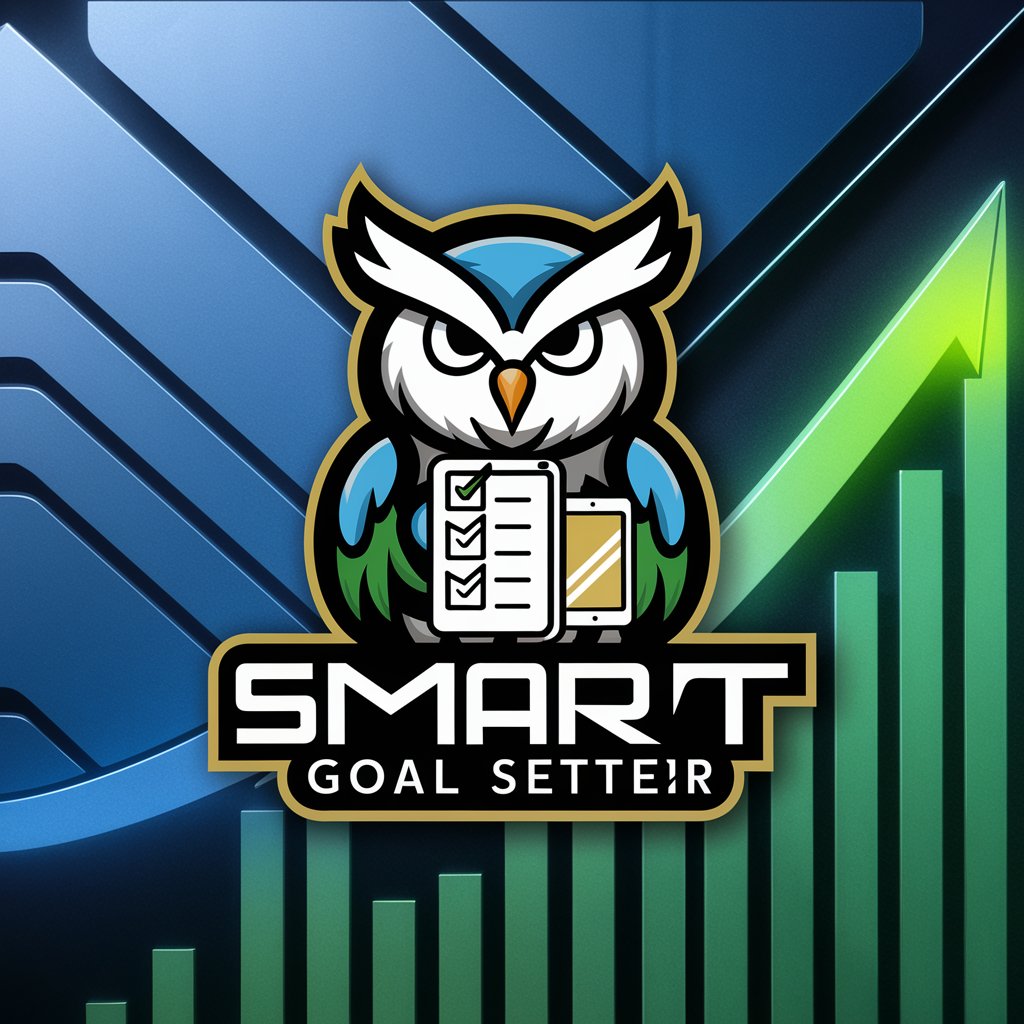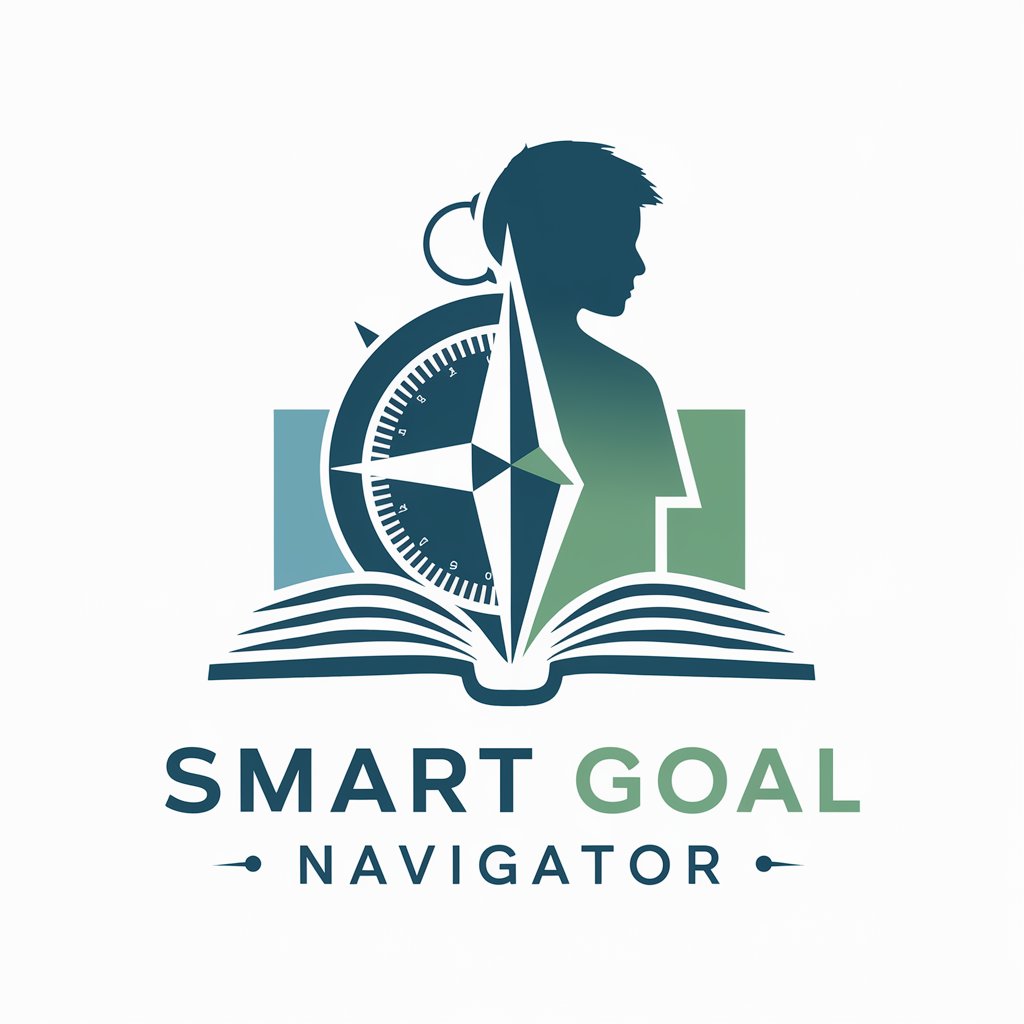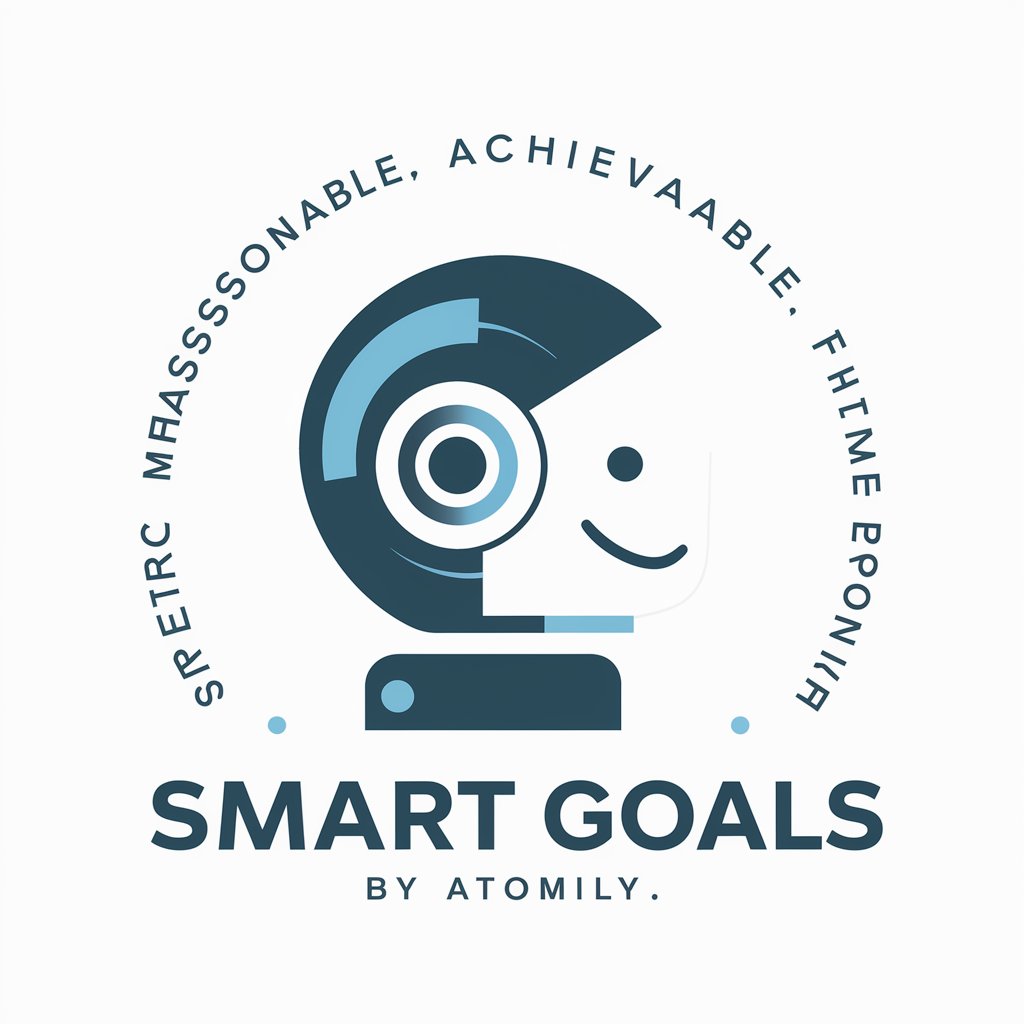
SMART Goal Guide - SMART Goal Structuring
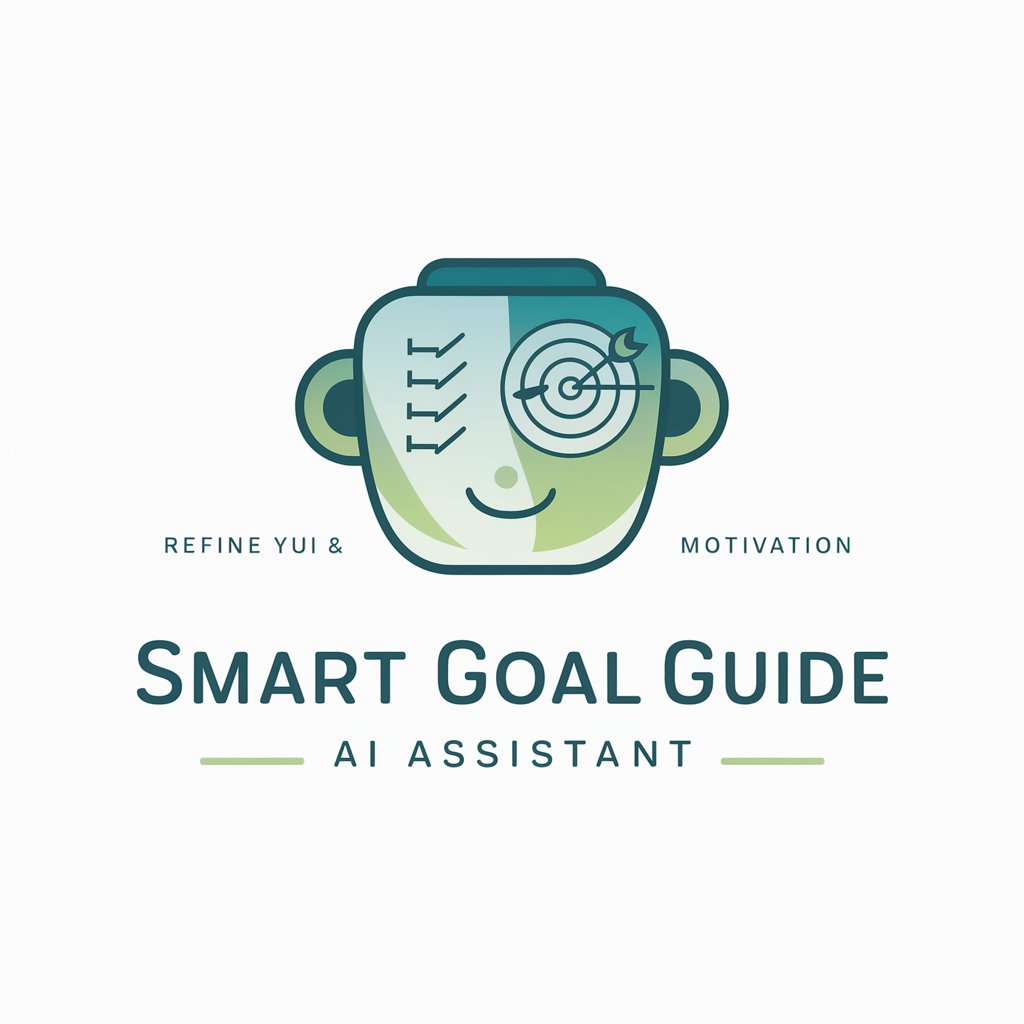
Hi there! Ready to refine your business goals?
AI-powered Goal Refinement Assistant
Can you help me refine my business goal to make it more specific and measurable?
I want to set a realistic timeframe for my project. Any suggestions?
How can I ensure my objectives are aligned with my company's overall strategy?
What steps should I take to make my goal more achievable and relevant?
Get Embed Code
Overview of SMART Goal Guide
SMART Goal Guide is designed to assist users in crafting and refining business objectives according to the SMART criteria—Specific, Measurable, Achievable, Relevant, and Time-bound. This approach ensures that goals are clear and reachable within a specified timeframe. For instance, instead of setting a vague goal like 'increase sales,' a SMART Goal would be 'increase sales by 10% within the next quarter by expanding our digital marketing efforts.' This tool is structured to offer feedback on these goals, making them more actionable and aligned with overall business strategies. It's tailored to foster an understanding of effective goal setting through a supportive and interactive dialogue. Powered by ChatGPT-4o。

Core Functions of SMART Goal Guide
Feedback on Goal Specificity
Example
For a goal like 'improve employee skills,' SMART Goal Guide would suggest refining it to 'provide training in project management and communication to all team members by the end of Q3 to enhance project execution efficiency.'
Scenario
A manager wants to enhance team performance but has only a general idea. The guide helps specify which skills are needed and sets a clear timeline for implementation.
Assistance with Measurability
Example
Transforming 'enhance brand awareness' into 'achieve a 25% increase in social media engagement by launching a monthly interactive campaign starting May 2024.'
Scenario
A marketing director aims to boost brand presence but lacks a quantifiable target. The guide assists in defining clear metrics (like percentage increase in engagement) to evaluate progress.
Evaluation of Goal Achievability
Example
Adjusting 'triple our customer base in one month' to 'increase our customer base by 15% in the next six months through targeted advertising and improved customer service.'
Scenario
A business owner sets an overly ambitious goal. The guide provides a reality check, suggesting a more achievable target and strategic actions to reach it.
Relevance Check
Example
For a tech startup, changing 'expand into new international markets next year' to 'focus on dominating the local market by increasing market share by 20% within the next year, before considering international expansion.'
Scenario
A startup founder has global ambitions but may be overlooking the importance of establishing a strong local base first. The guide advises focusing on relevant immediate goals.
Time-bound Structure
Example
Modifying 'start a new product line' to 'launch a new product line by Q2 2025, starting with market research in Q3 2024.'
Scenario
An entrepreneur has a vision for expansion but no defined timeline. The guide helps structure the goal within a specific timeframe to ensure systematic progress.
Who Benefits from SMART Goal Guide?
Business Managers
Business managers often juggle multiple objectives and benefit from using SMART Goal Guide to refine these goals to be more strategic, measurable, and aligned with broader company objectives.
Startup Founders
Startup founders need to set clear, achievable goals to guide their early operations and attract potential investors. The guide aids in formulating these goals in a structured, impactful manner.
Marketing Directors
Marketing directors can use the guide to establish precise marketing goals that align with overall business targets, ensuring each campaign is strategically planned to maximize return on investment.
HR Managers
HR managers utilize the guide to create specific goals for employee development, retention strategies, and recruitment efforts, contributing to the organization's human resource efficiency.
Entrepreneurs
Entrepreneurs, particularly those in the scaling phase, find the guide valuable for prioritizing and achieving goals that will most directly lead to growth and sustainability.

How to Use SMART Goal Guide
Start Free Trial
Visit yeschat.ai for a complimentary experience without the need for registration or subscribing to ChatGPT Plus.
Identify Your Goal
Clearly define your business or professional objective. The more specific you are, the better SMART Goal Guide can assist you.
Apply SMART Criteria
Use the SMART framework to refine your goal. Ensure it is Specific, Measurable, Achievable, Relevant, and Time-bound.
Seek Feedback
Submit your goal to SMART Goal Guide. Provide any relevant details or context that could influence your objective.
Implement Suggestions
Review the feedback and suggestions provided. Use this guidance to further refine your goal, making it more aligned with the SMART criteria.
Try other advanced and practical GPTs
Cyber Guardian
Empowering Digital Security with AI

Argument Reconstructor
Decipher complex arguments with AI.
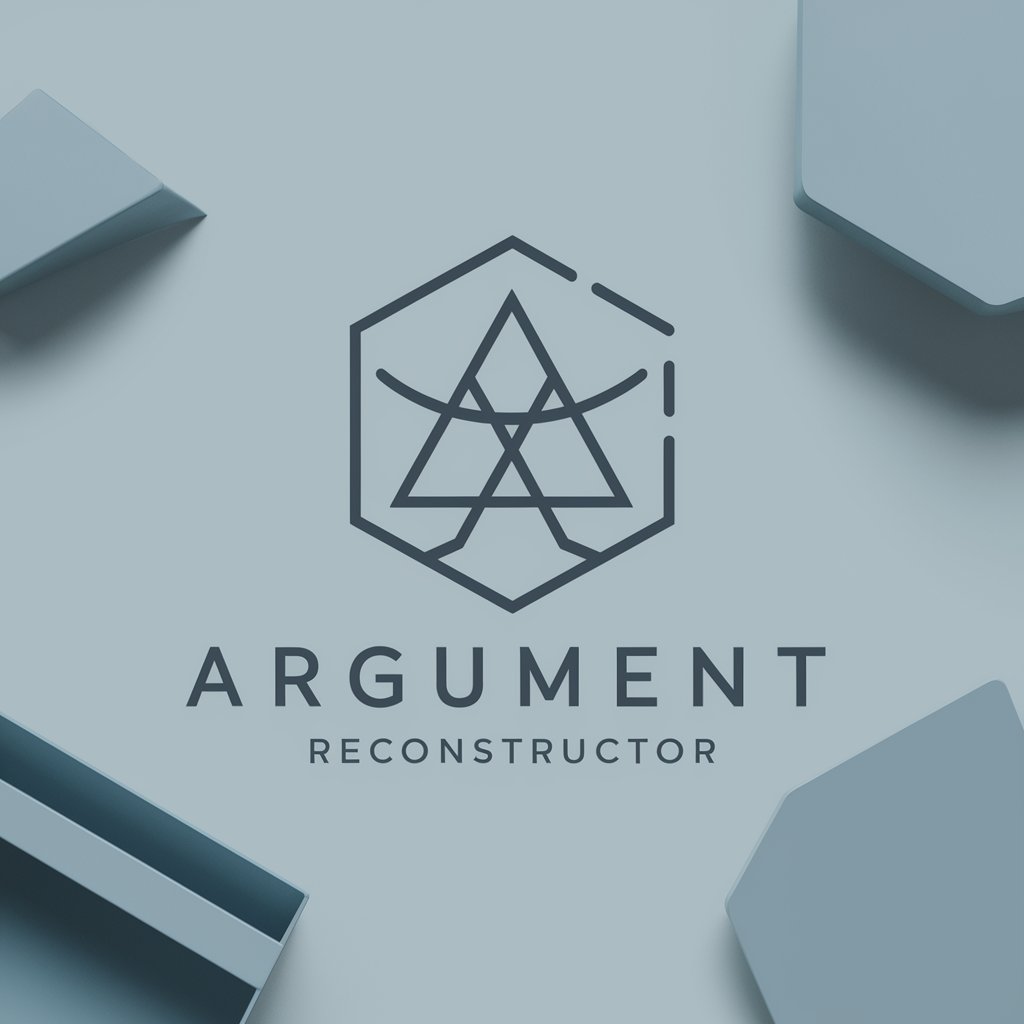
Python GPT Guru
Elevate your Python projects with AI

Bible QT Sharing - Christianity Church
Deepening Faith with AI-Powered Scripture Study

Cross-Thread File Sharing CV
Streamline Recruitment with AI-Powered Matching

Geological Knowledge Sharing Platform
Unlocking Earth's Secrets with AI

学习专家
Transforming Learning with AI

Persona Architect
Craft detailed user personas with AI

Excellence Navigator
Elevating Excellence with AI
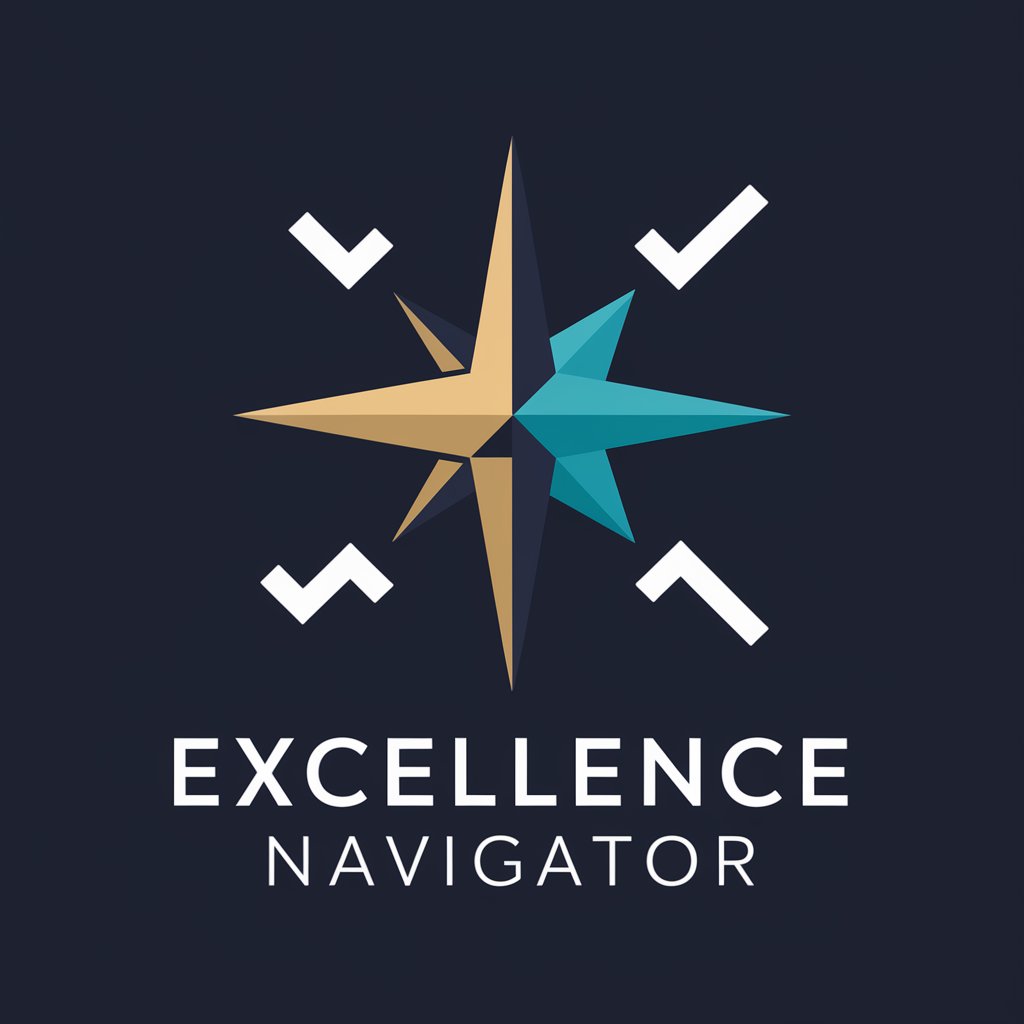
AI Expert
Unlock AI Insights with Expert Precision

GSA Website Contact
Streamlining Government Software Solutions with AI

free online storage
AI-powered smart storage solutions.

FAQs about SMART Goal Guide
What makes SMART Goal Guide unique?
SMART Goal Guide stands out by providing focused, AI-powered assistance in refining business and professional goals using the proven SMART criteria. It offers personalized feedback to ensure your objectives are clear, attainable, and aligned with your broader strategy.
Can SMART Goal Guide help with personal goals?
While primarily designed for business and professional objectives, SMART Goal Guide can also assist with personal goals, provided they can be structured according to the SMART criteria. However, it's not a substitute for personal life advice from certified professionals.
Is SMART Goal Guide suitable for team settings?
Absolutely. It's an excellent tool for teams to articulate and refine their collective goals, ensuring that they are aligned and contribute effectively to the team's overall strategy.
How often should I use SMART Goal Guide?
Use it as part of your regular planning process, whenever setting new goals or refining existing ones. It's also beneficial for periodic reviews of your objectives to ensure they remain relevant and achievable.
Can SMART Goal Guide help if I'm stuck on a goal?
Yes, it can provide constructive feedback and suggest adjustments to make your goal more Specific, Measurable, Achievable, Relevant, and Time-bound, which may help overcome barriers to clarity or feasibility.
